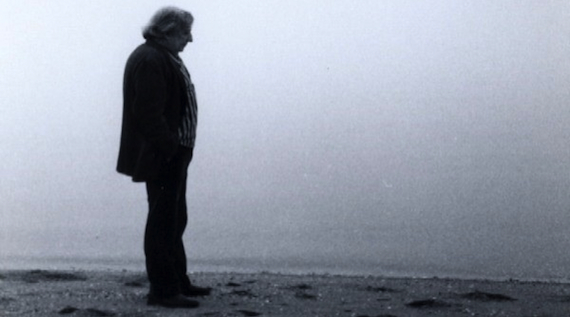
Emad Burnat and Guy Davidi’s 5 BROKEN CAMERAS won the Oustanding Feature award at the Cinema Eye Honors this year.
This week the Cinema Eye Honors were held at the Museum of the Moving Image in Queens, with Emad Burnat and Guy Davidi’s 5 BROKEN CAMERAS taking home top honors with the Outstanding Feature award. DETROPIA by Rachel Grady and Heidi Ewing took home two awards, one for outstanding direction and another for original score. Jason Tippet and Elizabeth Mims snagged the outstanding debut award for their festival darling ONLY THE YOUNG. Adam Benzine had the wrap-up of all the awards for Realscreen, while Christopher Campbell did the same at the Documentary Channel blog. Peter Knegt covered the awards for Indiewire, while Wendy Mitchell on the beat for ScreenDaily.
The Academy of Motion Picture Arts and Sciences (AMPAS) released its list of Oscar nominees this week, with the honors going to 5 BROKEN CAMERAS; SEARCHING FOR SUGAR MAN by Malik Bendjelloul; HOW TO SURVIVE A PLAGUE by David France; THE GATEKEEPERS by Dror Moreh; and THE INViSIBLE WAR by Kirby Dick. Nods for short-form docs went to INOCENTE by Sean Fine and Andrea Nix Fine; KINGS POINT by Sari Gilman and Jedd Wider; MONDAYS AT RACINE by Cynthia Wade and Robin Honan; OPEN HEART by Kief Davidson and Cori Shepherd Stern; and REDEMPTION by Jon Alpert and Matthew O’Neill.
Mark Olsen of the Los Angeles Times had a rundown of the Oscar nominees, while Laura J. Nelson had a piece on how the nominated shorts directors got the news. Alexandra Zeevalkink of DocGeeks rounded up trailers for the nominated films. Writing for Slate, Eric Hynes noted that the Academy had continued a tradition of nominating “newsy” docs in the face of recent rules changes regarding the Oscars. Christopher Campbell noted that an original song from the doc CHASING ICE and a remake of the film KON-TIKI had also received nods from the Academy. And Eric Kohn had a piece at Indiewire on how Kathryn Bigelow’s supposed snub had masked a greater one–the failure of Jafar Panahi to get a nomination for his film THIS IS NOT A FILM.

This week Stranger Than Fiction is hosting director Alan Berliner’s latest film, FIRST COUSIN ONCE REMOVED, which focuses on his relative Edwin Honig, a writer and poet suffering from Alzheimer’s disease. Berliner will be in attendance following the Tuesday, Jan. 15 screening at 8pm at the IFC Center for an audience Q&A. You can find more information and purchase tickets here. At the DocGeeks blog, Kristy Hutter has a review of the film that’s worth checking out.
Over in the UK the British Academy of Film and Television Arts (BAFTA) also released its list of nominees for the British Academy Film Awards. Adam Benzine of Realscreen and Alexandra Zeevalkink of DocGeeks had the details.
Michael Apted and his latest film, 56 UP, continued to draw media attention this week. Over at Gawker, Rich Juzwiak described the series as “anti-reality television.” At the Documentary Channel blog Christopher Campbell interviewed Paul Almond, the director of the original one-off film SEVEN UP! that started it all. Also, Apted sat down for interviews with Martin Parsons and David Licata.
HBO this week announced its documentary lineup for the first six months of 2013, which includes Alex Gibney’s MEA MAXIMA CULPA: SILENCE IN THE HOUSE OF GOD and a tribute to the late photojournalist and filmmaker Tim Heatherington by Sebastian Junger titled WHICH WAY IS THE FRONT LINE FROM HERE?: THE LIFE AND TIMES OF TIME HEATHERINGTON. Writing for Indiewire, Sophia Savage had the full lineup, as did Kelly Anderson at Realscreen.
HBO was also in the news after William Launder of the Wall Street Journal’s Speakeasy blog reported that the cable channel had partnered with Vice Media for a “documentary news show” set to air on the premium cable channel.
Back at the Documentary Channel blog, Christopher Campbell had an interesting analysis about how crowdfunding resources like Kickstarter could be a boon for right-leaning docs, using the film FRACKNATION as his case study. And writing for Movies.com, Campbell used FRACKNATION as a counterpoint to Josh Fox’s leftist anti-fracking film GASLAND.
Maria Goodavage had two posts on the Byron Hurt film SOUL FOOD JUNKIE at the Independent Lens blog this week. The first is an interview with director Hurt on how his father’s health problems inspired him to make the film. The second is a look by Goodavage at the possibility of eradicating food deserts in the U.S.
Laura Poitras graced us with another short via The New York Times Op-Docs this week, this one on the death of Guantanamo detainee Adam Latif. Poitras’ doc even got some shine from Xeni Jardin over at Boing Boing, no doubt helping to drive views among the digerati.
John S. Johnson at the GOOD website wrote a piece about the emerging practice of understanding media’s relationship to social change using data, arguing that new methods of measuring social impact could result in better films, and criticized filmmakers who placed their “artistic integrity” above “the issues they care about.” In a somewhat related piece for BU Today, Andrew Thurston asked if a film had the potential to change the world.
Ted Hope penned a blog post this week aggregating a bunch of posts from various authors containing advice on how to prepare for a film festival.
In distro news, Magnolia Pictures snagged North American theatrical rights for BIG STAR, while Icarus Films got North American rights for the film THE MACHINE WHICH MAKES EVERYTHING DISAPPEAR, which is set to screen at Sundance later this month.
Adam Benzine of Realscreen got a chance to interview filmmaker Sarah Polley at the Toronto Film Critic’s Association awards about the evolution of her storytelling technique. And colleague Kevin Ritchie had his own interview with THE IMPOSTER director Bart Layton.
Benzine also had the skinny on the win for best documentary by SEARCHING FOR SUGAR MAN at the Critic’s Choice Awards.
This past weekend POV hosted its second Hackathon, which featured eight teams of filmmakers, programmers and designers thrown together to spend the weekend creating documentaries designed for the web. You can check out details on the Hackathon projects and team members in a series of posts at the POV blog here. The teams presented their work at a “screening” on Sunday evening, with the best prototype award going to The Human Experiment, the best pitch award going to The Whiteness Project and the participant award going to Empire. POV earlier in the week also had a post by Emma Dessau on The Aatsinki Season, a web-based project born out of the first POV Hackathon, held in August of last year.
The ITVS Beyond the Box blog this week shared the third, and final, installment of its “What makes a good work-in-progress?” series, with the latest one coming from Michael Collins and Marty Syujo, the team behind the film GIVE UP TOMORROW.
Logan Hill wrote an interesting piece for the New York Times on 99%: THE OCCUPY WALL STREET COLLABORATIVE FILM, which initially used a consensus model in its production before switching to “the strictest hierarchy imaginable.”
This week Tom Roston’s post at POV took a look at the members of the U.S. documentary jury at Sundance.
Alexandra Zeevalkink of DocGeeks noted that the Why Poverty? doc series was now available to watch online in its entirety.
At Flavorwire, Tom Hawking published a list of 10 music documentaries that everyone needs to see in 2013, which includes Jay Bulger’s BEWARE OF MR. BAKER, along with Sundance selected PUSSY RIOT: A PUNK PRAYER from Mike Lerner and Maxim Pozdorovkin.
Joshua Kopstein of The Verge had yet more coverage of the interactive doc CLOUDS, which relies on a DSLR/Microsoft Kinect hack to produce an unusual image for its sit-down interviews.
Writing for Vice’s Motherboard, Eveline Chao interviewed filmmaker Stephan Chaing about his film HIGH TECH LOW LIFE, about Chinese journalist bloggers, and which opened at the IFC Center this weekend.
In his weekly Docutopia post, Anthony Kaufman lamented the decline of the direct cinema film.
At the Huffington Post, TREMBLING BEFORE G-D director Sandi DuBowski looked back at his Sundance experience and catalogued some of the changes that resulted from his film.
And finally, film critic Eric Kohn shared with the Tribeca Institute some invaluable advice for filmmakers seeking to gain the attention of film critics.
That’s it for this week. Please email any tips or recommendations here, or tweet them to @GuerrillaFace. Thanks, and have a great week everyone!





